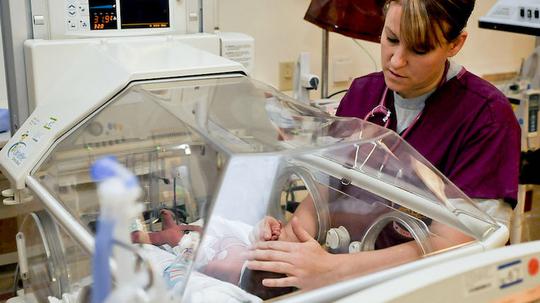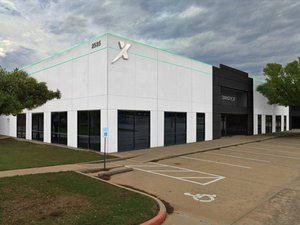
For a parent, there are few things scarier than learning your child will be born prematurely and spend days or weeks in neonatal intensive care units.
Everything seems -- and very much is -- incredibly fragile in these settings. Each little breath, movement and interaction can be a big deal for such a little person. Premature babies are predisposed to several health threats, and it's in these early days that signs of developmental issues can first be detected.
What that in mind, the Dell Medical School, the University of Texas and Seton Healthcare Family announced they are undertaking a massive new data project that will create a warehouse of vital signs collected from babies at Seton's two neonatal ICUs.
The project involves placing new monitors in the NICUs to gather data on heart rate, oxygen levels, temperature and other vitals that hospitals already collect. The difference is that instead of that data just getting a look from a doctor or nurse, it will be analyzed by a supercomputer to detect patterns and predict complications down the line.
“A project like this has never been done on this scale before, and that’s part of why we still can’t fully predict how neurological conditions develop over the span of a young person’s life,” David Paydarfar, chair of neurology at Dell Medical School, said in a news release. “We have so many more tools at our disposal now, and it’s critical that we have experts from a variety of disciplines — medicine, engineering and information technology — all invested in helping these children.”
Data from the Seton NCIUs will be sent to the Texas Advanced Computing Center, a facility in North Austin with supercomputers and some of the most advanced programing on Earth. After analysis, the data can help predict when complications might arise. And that information can help alert nurses and doctors who can help the newborns before the situation becomes more dangerous.
The new data may also provide insights over the long-term as the detailed information and ability to analyze it grow and help us learn more about things like sudden infant death syndrome.








